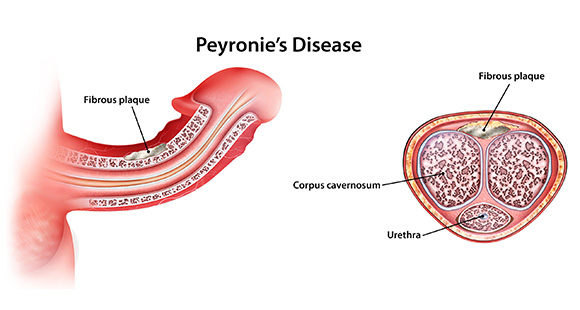
Peyronie's Disease As You Age
The risk of developing Peyronie's Disease may increase with age, as changes in tissue elasticity can make the area more vulnerable to injury and slower to heal.
If you notice a bend in your penis, it could be an early sign of Peyronie's Disease. We offer a range of therapies designed to help manage the condition and improve your quality of life.
Find out more how MansMatters can help you
Contact us for a complimentary 20-minute consultation with our men's health specialists.
Arrange a Free Telephone Consultation
Book a Treatment
Receive More Information & Our Explainer Video

Exploring the Prevalence and Key Features of Peyronie's Disease
The latest international data indicates that approximately 1 in 20 men may be affected by Peyronie's Disease (PD), with the condition most commonly occurring between the ages of 50 and 55.
The primary symptom of Peyronie's Disease (PD) is the formation of scar tissue, known as plaque. This plaque can usually be felt beneath the skin. While it most often forms on the upper side of the penis, it can also develop on the bottom or sides in some cases.
In some instances, the plaque may encircle the penis, causing a narrowing or other deformities. Additionally, this plaque may accumulate calcium, which can make it harder.

Exploring the Role of Scar Tissue in Peyronie's Disease
Scar tissue, with or without calcium deposits, may lead to discomfort during erections, difficulty achieving or maintaining firmness, or visible curvature, as it can reduce tissue flexibility in the affected area.
In some cases, multiple plaques can result in more pronounced curvatures, which could make sexual activity more challenging.
Additionally, scar tissue may contribute to a reduction in size or length, which can affect confidence and relationships.
Peyronie's Disease in Young Men
Although Peyronie's Disease is more commonly seen in middle-aged men, it can also affect younger men, with research indicating that 8–10% of those diagnosed are under 40.
Younger men with Peyronie's Disease may experience symptoms such as discomfort during sexual activity and may require medical attention to manage the condition.
Shockwave Therapy for Peyronie's Disease
Focused Shockwave Therapy is a well-established procedure for treating Peyronie's Disease, and it has shown to be effective in many cases without the risks of complications like changes in size. We have been helping clients in London for some time now, and they often report improved outcomes after completing a course of treatment.
It's not only our clients who see benefits; their partners also report satisfaction with the improvements in their relationships, including greater comfort during intimacy.

Exploring Patient Experiences
We have helped many men with Peyronie's Disease through our non-invasive treatment programme, and you can read some of their testimonials on our Peyronie's Disease Case Studies page or view further handwritten reviews when you visit our clinic.
While many patients report noticeable improvements after completing the initial programme, Peyronie's Disease can be a challenging condition, and in some cases, it may not respond to non-invasive or non-surgical treatments.
Knightsbridge
Richmond
MansMatters are specialists in non-invasive, nonsurgical procedures. We do not offer surgery but have professional relationships with leading surgical urologists and andrologists who undertake different types of Peyronie's disease surgery. If you would like to know more about surgical options, then please click here.
Surgical Procedures














